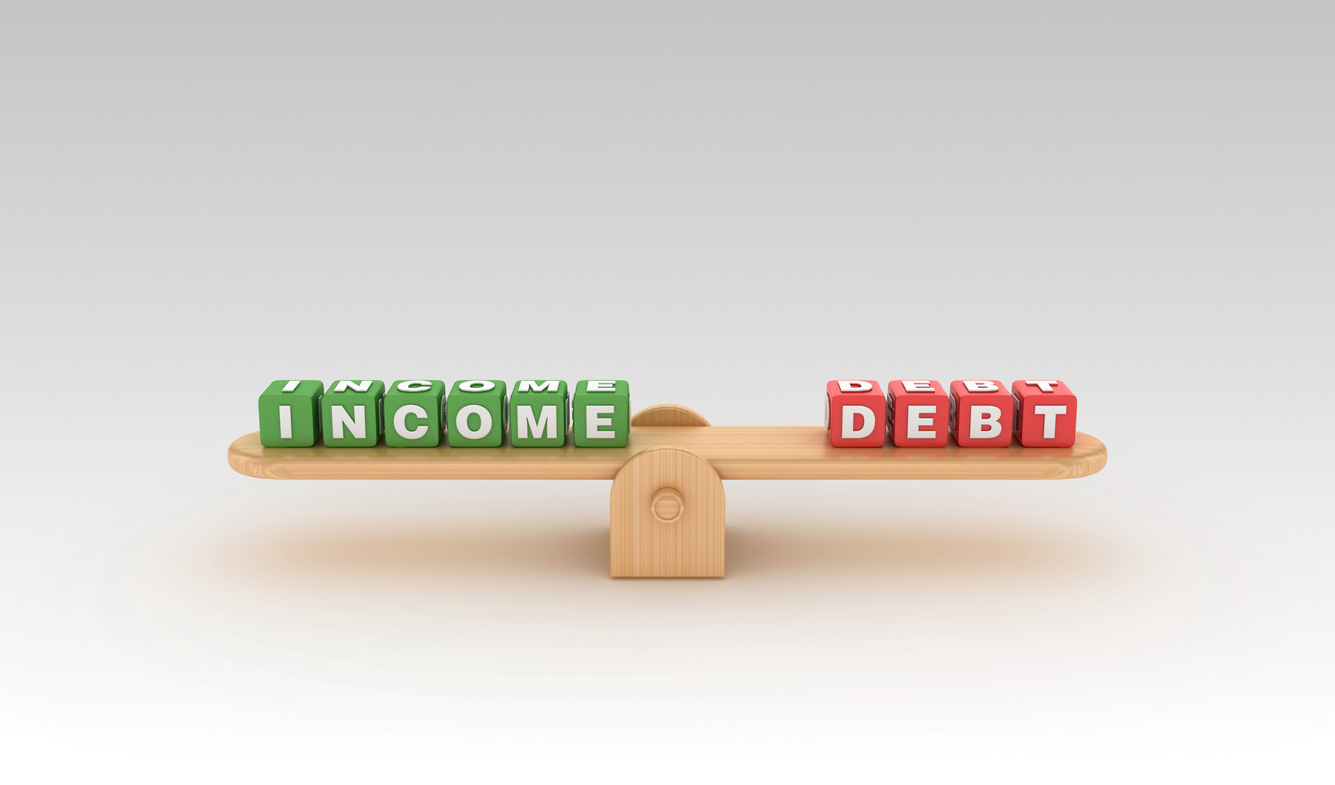
Key Takeaways
-
Understanding the details of different methods for accessing home equity is essential in making the right choice.
-
Consider short and long-term financial goals before using home equity to repay debts.
-
A home equity agreement is a good method for obtaining cash without the burden of monthly repayments for principal and interest.
Your home is often one of the largest investments you make over a lifetime. The current real estate market supports that conclusion, as many people’s net worth largely comes from the value of their home.
At the same time, rising costs, unexpected expenses and pressing needs can mean even the most financially savvy person can accumulate debt. Student loans, medical emergencies, home repairs and other life events are almost unavoidable in today’s world. Some people who lack cash, and whose largest asset is their home, are able to tap into their home equity, and then use the cash to consolidate loans and to repay high-interest debt faster – saving them significant money over time.
Several financial arrangements exist for today’s homeowner to leverage home equity. Each comes with its own set of trade-offs, and determining which method is best will always depend on the context of the homeowner’s finances. Here, learn more about the different methods and considerations for unlocking your home’s equity to repay debt.
What Is Home Equity?
Home equity is simply your ownership stake in your house. You can calculate the equity in your home by determining its current fair market value, and then subtracting the value of any mortgage or other lien (liability) on the property.
What is left, your equity, is the amount you would receive if you were to sell the home today. Although home equity is unrealized until you actually sell the house, many financial institutions will still recognize its value when a homeowner is looking to take out a loan. This is because real estate has traditionally been a stable market, where value tends to gradually increase over time.
Four Ways to Use Home Equity to Pay Off Debt
Several options exist for today’s homeowner who wants to access some of their home equity to repay debts or finance other goals. With any method, home equity deals can be complex, and the different value propositions of each alternative reside in the details. Before reaching any conclusion about tapping into your home equity, gain a clear understanding of their mechanics and how they might fit with your needs.
Cash-Out Refinance
You may have heard about refinancing a loan – often a mortgage – to receive a more manageable monthly payment. Usually, this is done by extending the term (e.g., going from a 15- year to a 30-year mortgage) or adjusting to a lower interest rate.
A cash-out refinance replaces a current mortgage with a new one. The benefit is the receipt of a lump sum (“cash out”) at closing. This is because the amount of the new mortgage loan is more than what is needed to pay for the house that secures it. You receive that difference in cash. The downsides to this method include closing costs, and reduced equity in your home because of the increased mortgage. In the current economic climate, however, it’s become drastically less popular, as we continue to see mortgage interest rates rise.
Home Equity Line of Credit (HELOC)
Another option that does not involve closing costs or applying for a new mortgage is opening a home equity line of credit. A HELOC works similarly to a credit card in that it allows you to access funds on a revolving basis up to a certain amount. The key difference is that the lender providing the HELOC has an interest in the house should you ever default on payments.
Although some HELOCs require a minimal distribution once created, you can withdraw funds as you need. You then repay the HELOC with amortized payments of principal and interest. The value of a HELOC is this flexibility to withdraw, and then repay, funds as needed. Many homeowners take this approach to pay for home repairs, appliance purchases, medical bills or even starting a small business.
Home Equity Loan (HEL)
A home equity loan is just as the name implies: a loan taken against the value of your home. Like a cash-out refinance, this method involves receiving a lump sum of cash at closing. A HEL may be more common for homeowners who do not carry a mortgage on their property, and for those who need a larger amount of capital upfront. In the case of homeowners with a primary mortgage, HELs may still be an option.
Home Equity Agreement (HEA)
A newer option for homeowners looking to capitalize on their home equity is to enter a home equity agreement with a real estate investor like Unlock. Rather than using your home value to acquire a new loan, an HEA allows you to receive cash by selling a percentage of your home’s future value – that is, a share of the proceeds from the future sale of the home.
Typically, the amount of cash a homeowner can receive with an HEA will be around 10% of the home’s current value. This will be in exchange for a slightly higher percentage (often about 16%) of equity given to the real estate investor. The exact terms will vary and depend on specifics including the home’s type, condition and location, and the owner’s finances.
Most HEAs have 10-year terms. That means the homeowner must repay the equity percentage (that 16% mentioned above) to the investor within that time. If a homeowner does not want to sell the home within those 10 years, they can buy out the investor’s equity at an earlier time. This usually requires an appraisal to determine the fair market value of the home at the time and, consequently, the amount owed based on the original percentage term.
How Does a Home Equity Agreement Differ from a Reverse Mortgage?
A reverse mortgage is another type of loan against a home. Older homeowners who have paid off their mortgage, or have substantial equity in their home, sometimes use a reverse mortgage to keep up with housing costs (repairs, property taxes, HOA dues, etc.). A reverse mortgage, like a home equity agreement, does not require monthly payment. However, a reverse mortgage has the potential to consume all of a home’s value over time, whereas an HEA is tied to a percentage of the proceeds from your home’s sale.
The Pros and Cons of Using Home Equity to Pay Off Debt
No decision involving money is without risk, and managing that risk effectively requires evaluating the pros and cons of a financial decision. Using your home equity to pay off debt is no exception.
The Benefits: Lower Interest Rate, Better Cash Flow, Administrative Ease
Several benefits may exist for using home equity to pay off debt. You can use the proceeds to pay off debt that has high interest rates and burdensome monthly payments. Consolidating loans with home equity proceeds can mean less administrative hassle, because you have fewer accounts to manage. You can also save money over the long-term and improve your short-term cash flow. And you’ll have funds to prioritize other financial goals you might have, such as emergency savings, retirement and other investments.
The Risks: Foreclosure, Real Estate Market Downturns
A key downside to using home equity to finance other obligations is the risk of foreclosure in the event of default. A default is when you are unable to make your payments – in this case, your mortgage payments – when they are due. Foreclosure is the process of a lender initiating a sale of the house to recover any outstanding balances from the homeowner. The risk of foreclosure is a serious one, as it can leave someone vulnerable and without a place to live.
In addition, while real estate markets are generally relatively stable, the potential always exists for changes in the market that can lower the value of your home. This could result in a situation where the proceeds of a home’s sale are not enough to cover the mortgage or other loans that the home secured.
Should You Use Your Home Equity to Pay Off Debt?
Using home equity to repay other debts is a decision that should not be made without careful consideration of your finances and future goals.
Factors to Consider Before Using Home Equity
Consider all relevant points surrounding your debt, your financial goals and your home equity options.
-
Interest rates. Will you be reducing interest costs by using a home loan to wipe out another existing debt? If the difference in interest rate is minimal, it may not make sense after accounting for closing costs.
-
Budget. For options where you’ll have a monthly payment, how will it fit into your monthly budget? Be sure you can manage the new loan terms with your income and expenses.
-
Entire cost of a home equity loan. You can easily overlook the actual costs of tapping into your home equity. Consider closing costs, appraisal fees and broker fees. Ask upfront about any other expenses.
-
-
Future plans for the house. What are your plans for your home? Do you plan to sell or rent it? Calculate all related expenses when you are weighing pros and cons of each home equity option.
Using home equity requires looking at both short- and long-term benefits of the transaction. For example, using a home equity loan to fund an education that can improve your earning potential might have positive long-term results. Conversely, reducing interest rates on other loans might save you money long-term, but could decrease short-term cash flow because of a shorter repayment schedule.
Evaluate Alternatives in Lieu of a Home Equity Loan
Before closing on a home equity loan, consider other options. In some cases, taking on extra risk in the form of a home equity loan might not be the right decision. Some of those options might include:
-
Downsizing. If the purpose of the home equity loan is to cover expenses of maintaining an expensive home, downsizing might be a better solution. You would eliminate those costs and realize the gain in your home’s appreciation.
-
Selling assets. Sometimes, people use home equity loans to pay debts associated with another asset (e.g., a new car or other expensive equipment). An alternative is to sell that asset instead of refinancing through a home equity loan.
-
Using other funds. If you have a retirement account or other investments, you may consider taking a loan out against those assets, or even selling those assets to repay debts. You would need to carefully evaluate the cost of not earning interest on those investments, the cost and risk of taking on additional debt through a home equity loan, and, in the case of retirement savings, decreasing the amount set aside specifically for that purpose.
No single right answer exists when it comes to issues of managing finances and using new debt to repay old debt. What is important is knowing your comfort level and risk tolerance, and understanding the details of the options you have.
Consider a Home Equity Agreement with Unlock to Repay Debts
Using a standard home equity loan to repay debts can sometimes feel like kicking the can down the road. That’s because you are usually replacing one obligation with another by swapping interest rates and repayment schedules. An HEA through Unlock Technologies provides a different value proposition.
Instead of profiting off the homeowner by collecting interest, Unlock takes a bet on the continued appreciation of your property. Unlock Technologies accepts an ownership percentage in your home’s future equity in exchange for cash now. The benefit of this arrangement is three-fold for the homeowner. First, you receive cash you may need to repay current debts. Second, you are not left with a new monthly payment of interest and principal. Third, you obtain flexibility of when and how you repay Unlock over a 10-year window.
Some general eligibility requirements include:
-Residential property primary or secondary residence)
-Minimum FICO score of 500
-Equity in the home
The blog articles published by Unlock Technologies are available for general informational purposes only. They are not legal or financial advice, and should not be used as a substitute for legal or financial advice from a licensed attorney, tax, or financial professional. Unlock does not endorse and is not responsible for any content, links, privacy policy, or security policy of any linked third-party websites.”


